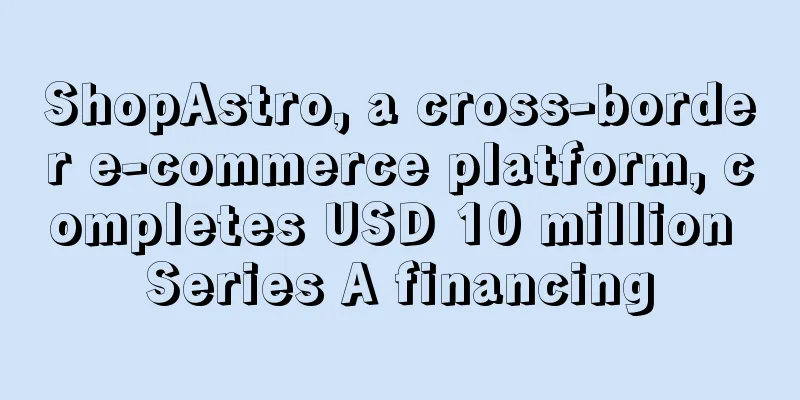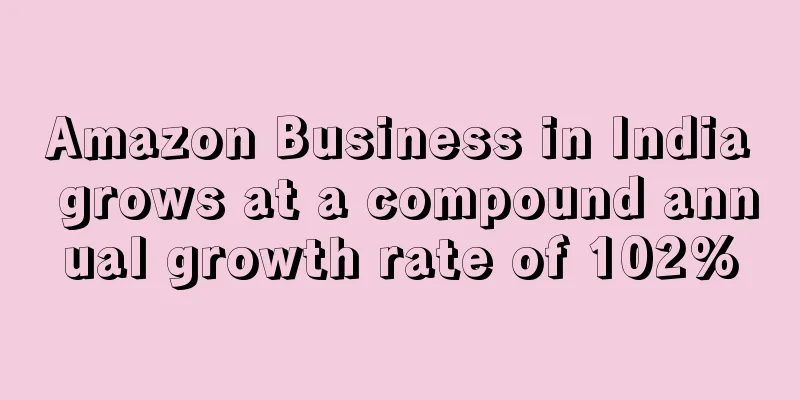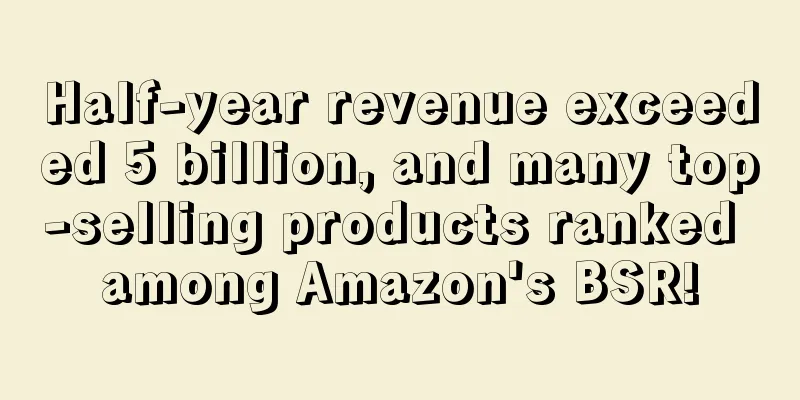ShopAstro, a cross-border e-commerce platform, completes USD 10 million Series A financing

|
As the big sellers of products are on the road to financing and listing, cross-border service providers have also started their journey of financing and listing. Under the influence of Amazon’s account suspension last year, many sellers have begun to seek independent station platforms to reduce operational risks.
However, it is not that easy to build a website by yourself, so a number of one-stop SaaS e-commerce service platforms have emerged in China . These e-commerce service platforms can provide one-stop solutions for cross-border sellers from customer acquisition, website building, advertising, ordering, logistics, and payment.
At the same time, using independent website building SaaS as the entry point, it provides brand overseas sellers with a one-stop full-link overseas solution, and relies on big data and AI technology to help sellers refine operations and improve traffic conversion rates.
ShopAstro is such a platform. It is understood that it was established in 2021 and is headquartered in Hangzhou. It has branches in Shenzhen, Xiamen and Yiwu. It currently serves hundreds of customers.
According to public information from Tianyancha, ShopAstro had completed its angel round of financing in September 2021. At the end of March 2022, the company completed a US$10 million Series A financing, led by Hillhouse Capital, with angel round investors Blue Lake Capital and Shenjin Capital continuing to make additional investments.
Compared with third-party e-commerce platforms such as Amazon and Wish, the most difficult thing for sellers to do with independent websites is to attract traffic. Generally, independent websites will attract traffic to their own independent websites through social media, email marketing, major search engines, alliances or Internet celebrities, and then promote traffic conversion. From this perspective, the cost and difficulty of acquiring customers for independent websites are much higher than those of third-party e-commerce platforms.
However, some cross-border professionals have questioned this business model, saying that by operating an independent website in this way, sellers still display their store, product and other data to third parties, which cannot be considered a true "independent website". In addition, some search engines are not very friendly to SaaS platforms, which will weaken the weight of related platforms. Cross-border service providers Financing |
<<: Amazon punishes fake review sites, but does this hurt sellers?
>>: eBay UK will increase parcel prices from March 31
Recommend
Polish e-commerce company Allegro's revenue in 2021 exceeded 1.14 billion euros
Recently, the Polish e-commerce platform Allegro ...
What is Fave? Fave Review, Features
Fave is the fastest growing O2O company in Southea...
What is FaNet Logistics? FaNet Logistics Review, Features
FaNet Logistics (Shanghai FaNet Supply Chain Manag...
Heartbroken! A job seeker with 4 years of experience in operations only offered a base salary of 7k
Affected by factors such as rising raw material p...
Startup Merama raises $160 million to expand into Latin American e-commerce
E-commerce startup Merama recently announced that...
U.S. trucking demand drops sharply as retailers wait for more orders
According to data released by FreightWaves , a tr...
Losses of over 30 million in half a year! The company is in decline after selling its products in bulk
The products are selling well but are still stuck...
What is Monica + Andy? Monica + Andy Review, Features
Monica + Andy is committed to providing a quality ...
The time limit is too scary! Multiple logistics companies stop accepting goods from 8 states in the United States
The snowstorm in the United States continued, and...
Anker Investment! Many products sold well on Amazon
The hobbies of people in the East and the West ar...
180 million yuan! Cross-border e-commerce SaaS platform Jijia completes Series A financing
Cross-border e-commerce On July 5, Jijia, the fas...
What is Byju's? Byju's Review, Features
Byju's is an Indian K12 online education serv...
46 new online stores opened! UK Marks & Spencer starts again after the epidemic
According to the BBC, British department store Ma...
After the seller closed the refurbishment service, the product was still resold by Amazon
In online shopping, product packaging and quality...
It broke into BSR in 30 days and broke through the siege with its hit product!
As the dividends from the epidemic gradually shri...









